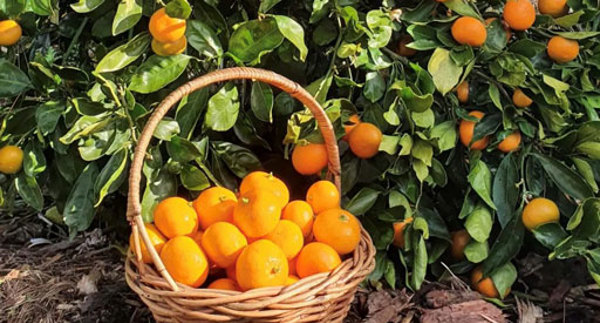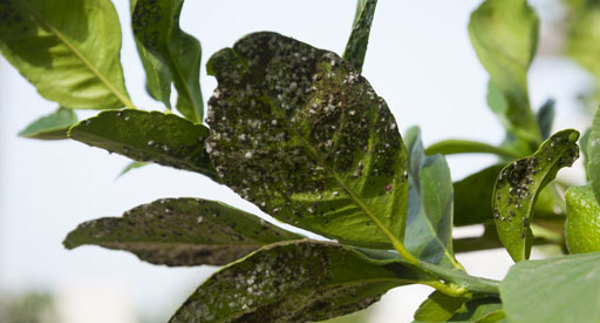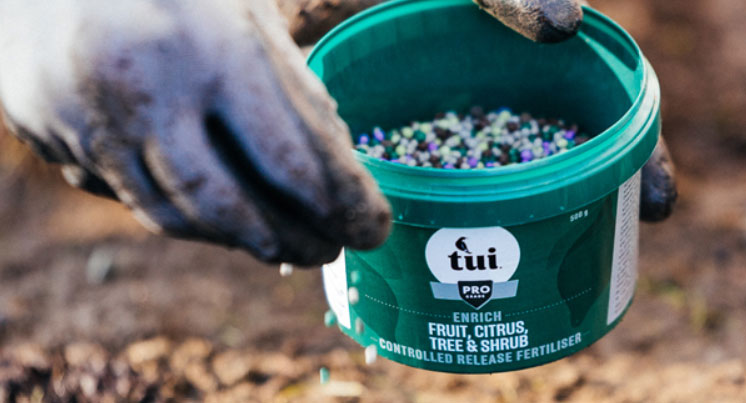
Citrus are a Kiwi fave to grow and with the right position and care they will produce an abundance of fruit. Handy in cooking and for snacking, citrus can be grown in the garden or pots.
They can be prone to some issues, especially over the warmer months. We've put together our top 5 summer citrus tips ensure healthy plants and harvests.
1. thinning & LIGHT PRUNING
Citrus can be cyclical bearing - good one year, not the next. Thin the foliage on an on-year, and light prune in an off-year to stimulate growth as they flower and fruit on current seasons growth.
Shorten any dominant water shoots by about one third. Ensure good air circulation around the plant to reduce the chance of fungal disease. Remove dead, broken, diseased material, and trim out weak spindly growth.
Remove any dark green thorny suckers that appear at the base of the tree, this will be the rootstock which will eventually take over and dominate.

2. insect pests
Pests can be a problem in spring and summer.
- Whitefly are a problem in summer and there are several methods of control. Regularly blasting the insects with a hose seems to eventually drive them away. Spray with a horticultural spraying oil or suitable insecticide that has a nil or low withholding period if there is fruit on the tree, or place sticky traps in the tree to attract insects and disrupt their lifecycle.
- If ants are crawling over the plant that is a sure sign of sucking insect pests like aphids, mealy bug and scale, which excrete a honey dew while feeding on the plant. Eliminate the insect pest and the ants will go away. Use a horticultural spraying oil or a pyrethrum based insecticide, repeat sprays will be necessary.
- Likewise a black sooty mould which is a windborne fungus that feeds on the honey dew. Once the insect pests are controlled, a horticultural spraying oil or milk will help remove the sooty mould.
- Make sure pruning wounds are sealed to prevent entry of lemon borer flies. Any wounds will give the larvae easy access into the tree stem eventually weakening it.
3. FEEDING
Feed citrus with a specialty citrus food in spring and again in late summer, early autumn. In cooler regions that experience frost however, feed in late summer so that new growth has time to harden off and avoid frost damage in winter. For citrus in pots and containers feed with Tui Enrich Fruit, Citrus, Tree & Shrub controlled release fertiliser.
Citrus don’t like wet feet so a free draining soil is important. Regular watering, feeding and mulching along with fortnightly applications of Tui Organic Seaweed Plant Tonic (as a plant tonic it can be applied between feedings) will keep plants actively growing, making them less susceptible to pest, disease and stress.

Tui Enrich Fruit, Citrus, Tree & Shrub fertiliser
4. PREVENT FUNGAL DISEASE
Regular spraying with a copper based fungicide will help prevent common fungal diseases, especially verrucosis which causes the corky skin that makes fruit look unsightly and leaves distorted. Use a copper based spray, once fruit has set and the petals have fallen, at regular intervals to prevent verrucosis. Note, the fruit is still edible it's just unsightly looking.
5. watering & mulching
For newly planted citrus water daily until the tree is established, depending upon the weather. For established trees water every 2-3 days. For trees in large pots and containers water every day, sometimes in summer twice a day, weather dependent.
Apply a quality mulch around the tree such as Tui Mulch & Feed to keep weeds down, conserve soil moisture, add nutrients to the soil and protect roots from drought. Do this in early spring once frost has passed and again in late summer/early autumn. Citrus don’t like competing for nutrients and water with grass or weeds.
Don’t be alarmed if small fruit start dropping off the tree. It's normal for citrus to shed excess fruit, the plant will hold on to what it can. Ensure the plant is consistently watered while setting fruit, inconsistent watering can also cause fruit to drop.
Post a comment
Top 5 Summer Citrus Tips Comments
Be the first to write a comment